This spring I will be traveling to Arusha, Tanzania with Dr. Karin Wollschlaeger to work at the local hospital from March 17 to April 14. She has been working for the last several years to establish a global health elective for senior level residents and was able to successfully complete the first trip to Arusha, Tanzania in 2019 with Dr. Rachel Mason who was a chief resident at that time. Unfortunately, the COVID-19 pandemic has prevented subsequent visits to Arusha due to travel restrictions and no visits were able to be completed in 2020, 2021, or 2022 despite great resident interest and participation in global health education. In 2023, our goal is to rebuild and strengthen this global health elective that Dr. Wollschlaeger and the global health elective committee have worked so hard to initiate. While we are in Arusha, our major goal is to work with the surgeons there to perform and teach the vaginal approach to hysterectomy so that they may carry on these minimally invasive surgical skills for future patients. While volunteering, we also plan to participate in hospice care and to perform grand rounds lectures on different gynecology-related topics.
This project will first benefit the Tanzanian surgeons who will be learning the skills to perform total vaginal hysterectomies. In turn this will not only affect the patients we will operate on ourselves but also many future patients who will be able to receive a minimally invasive hysterectomy without the requirement of advanced technology such as scopes, cameras, and screens. We also hope to benefit the nearby underserved communities by participating in hospice care and cervical cancer screening and prevention.
While we do have several things we plan to focus on, such as teaching techniques for the vaginal approach to hysterectomy and teaching several grand round lectures, participating in hospice care and community outreach programs (cervical cancer screenings). In 2023, our goal is to rebuild and strengthen this global health elective that Dr. Wollschlaeger and the global health elective committee have worked so hard to initiate. Succeeding in this task will have a great impact on myself and our residency program. It will expand our views and understanding of medicine in other, less developed countries and help to identify future needs as well as to continue laying the groundwork for future resident trips.
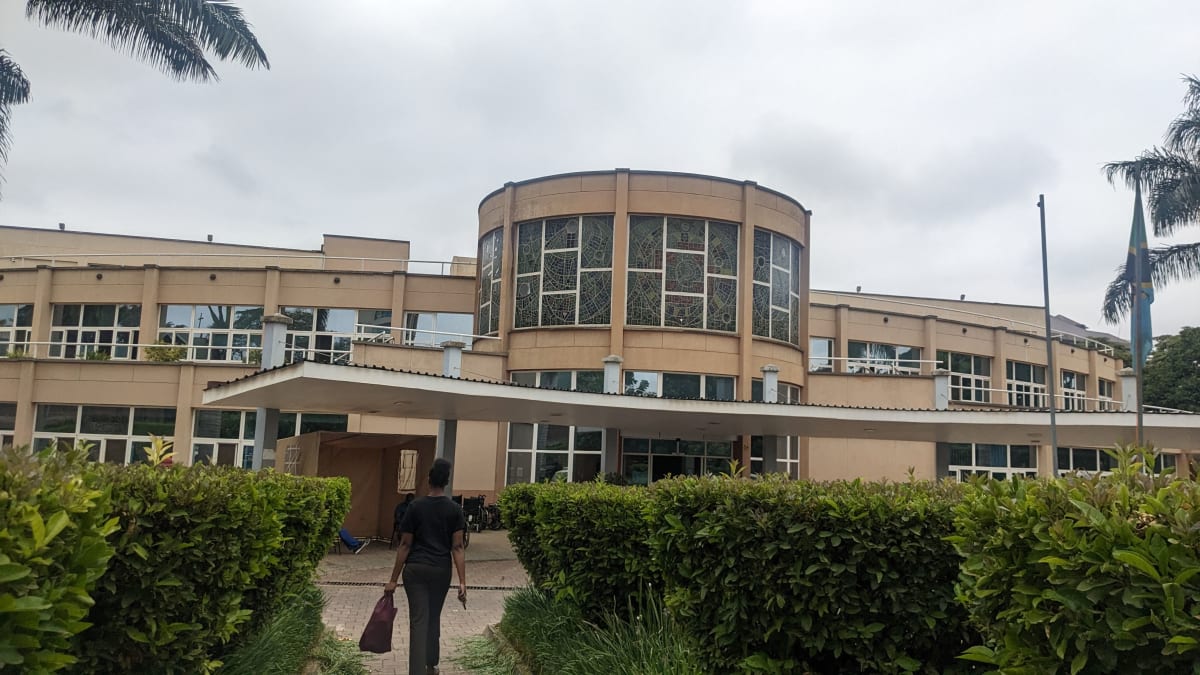
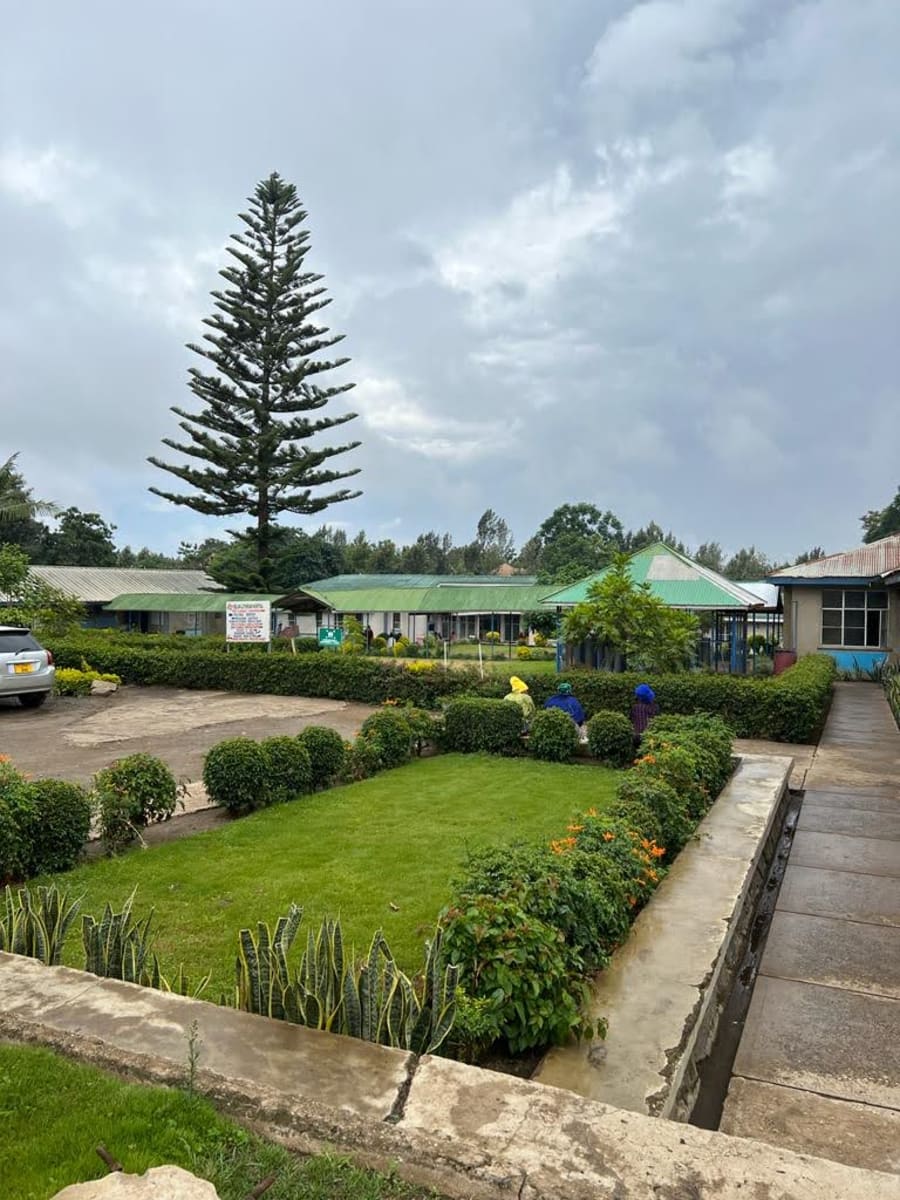





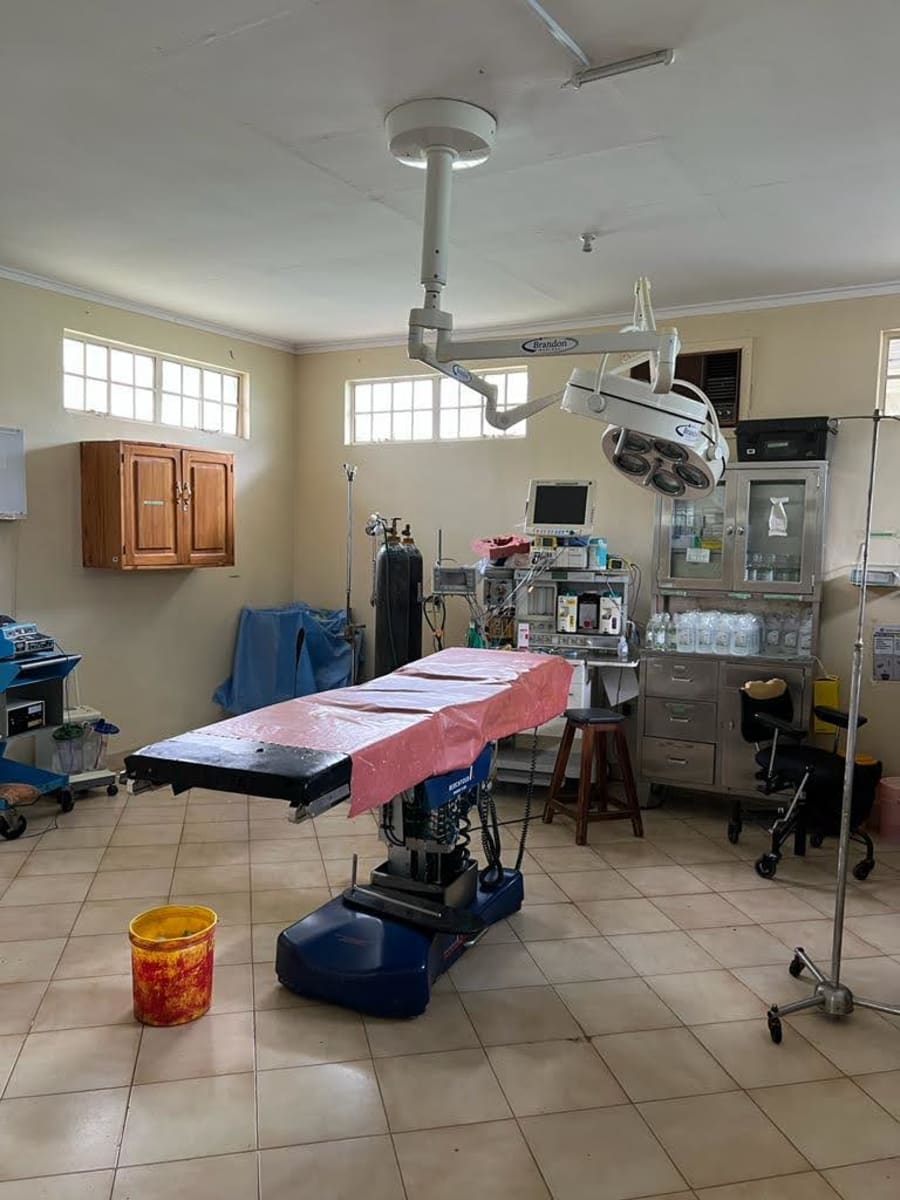
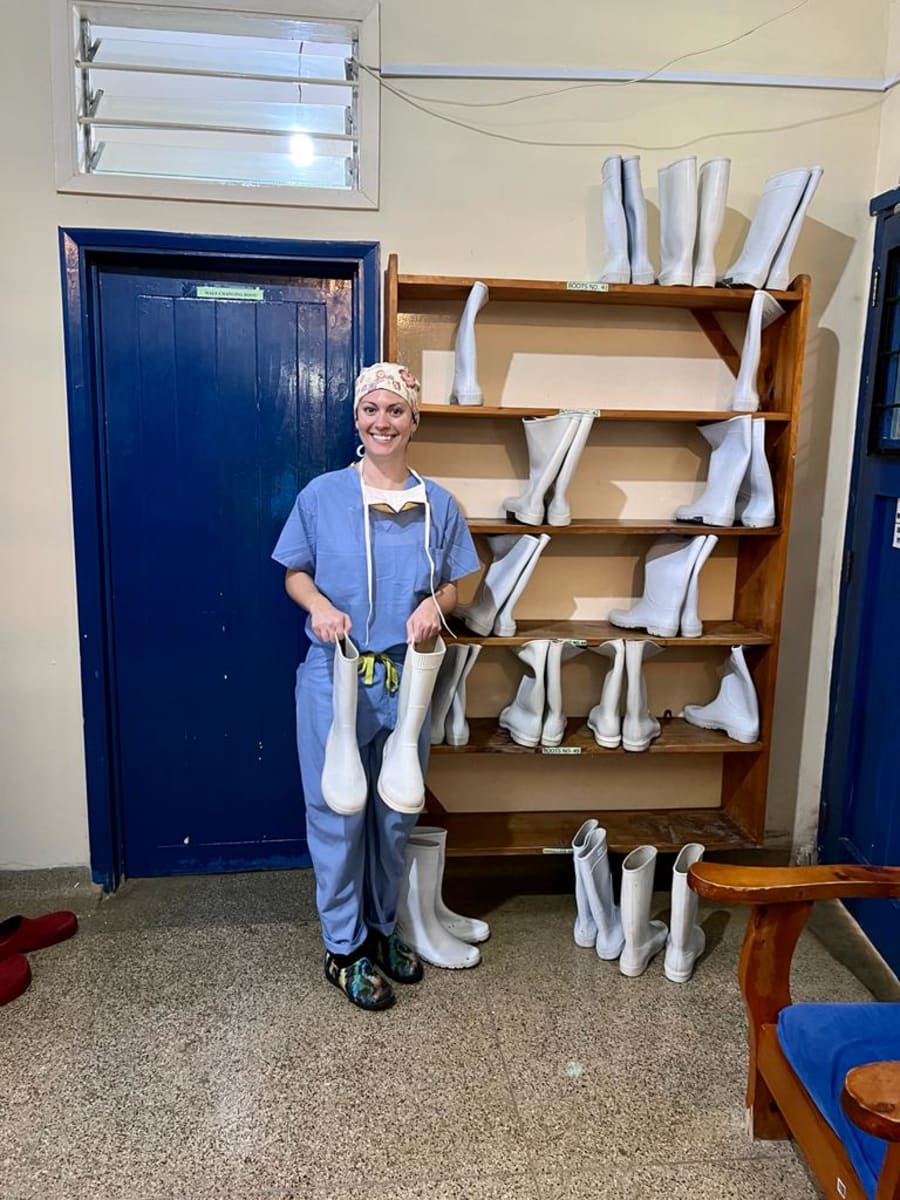

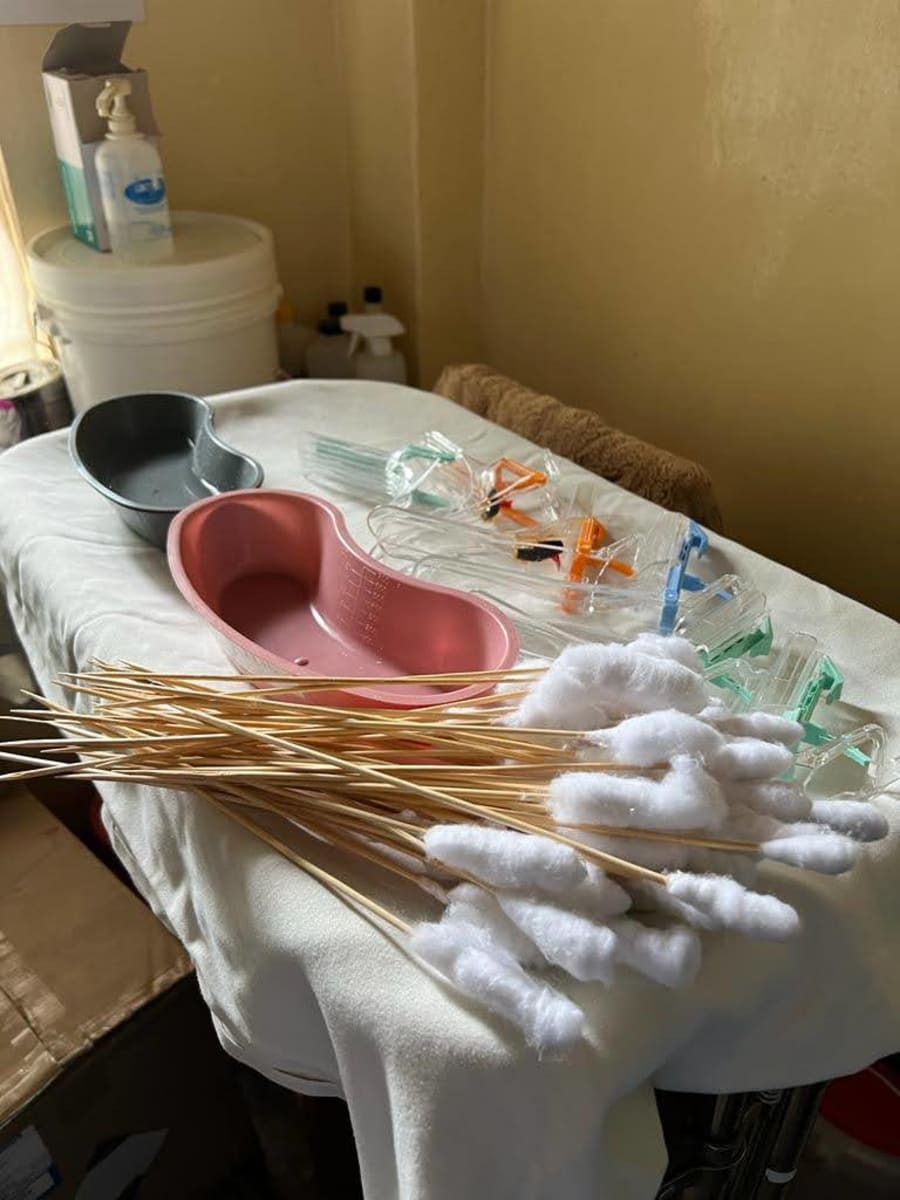
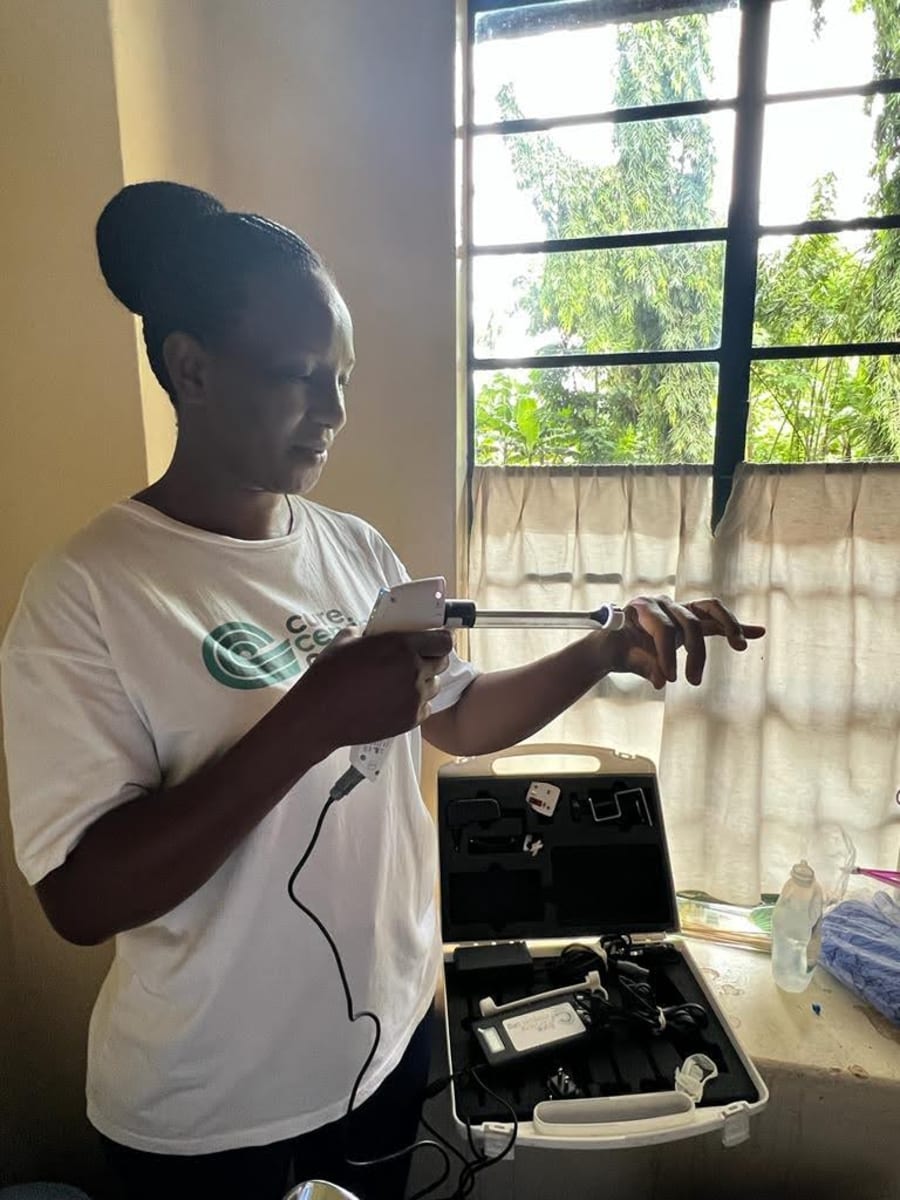




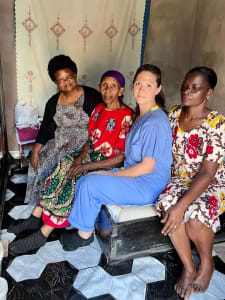
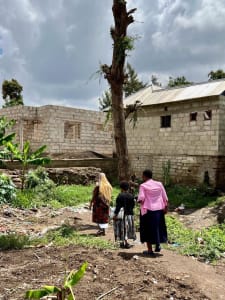






One of our main goals while in Arusha was to help to establish a laparoscopic surgical skills training curriculum for the residency program at Arusha Lutheran Medical Centre (ALMC). They have a general surgery residency which is the first Tanzanian-based residency and also contains Tanzania's first ever female general surgery resident. Currently, this hospital has limited capabilities to perform laparoscopic surgery although it is performed on occasion for routine cholecystectomies. The rarity of laparoscopic cases is mostly due to lack of proper laparoscopic OR equipment, but also largely due to a lack of experience in laparoscopic surgery by both the residents and attending physicians. Our goal was to bring over Fundamentals of Laparoscopic Surgery (FLS) training boxes and materials to teach the residents and interested attending physicians basic laparoscopic skills to be translated to real world scenarios in the future. While we were there, we held several four hour laparoscopic surgery training sessions. During these sessions, we first started with a didactic presentation on laparoscopic focused pelvic anatomy and pelvic masses. We also gave lectures on how to use the FLS training sets and the tasks the FLS exam requires test takers to perform to become certified. The residents and attendings were extremely interested in these sessions and there was a great turnout for each presentation. The residents at ALMC also expressed gratitude for the practice materials we brought them and for our time and effort given to help them to develop their laparoscopic surgical knowledge and skills. By the end of our final training session, the residents were adept at the peg transfer task, showed marked improvement in the circle cutting task, and were beginning to understand the principals of intracorporeal knot tying. The residents discussed with us their plans to continue practicing these skills and to build these practice times into their weekly didactic schedules.
Our future goal is to continue to return to ALMC yearly and continue to help the residents develop these skills and monitor their progress. Our ultimate goal is to give them the skills to safely perform laparoscopic surgery when the hospital has a greater capacity to do so or at whatever hospital they practice in after they graduate their residency program.
Our other main focus during our time in Arusha was located at another hospital called Selian Lutheran Hospital (Selian). This is a community based, government-sponsored hospital. Although Selian is extremely disadvantaged in regards to resources and funding, it contains the heart and soul dedicated to give back to their community. While at Selian, we participated in resident education, morning ward rounds, and gynecologic surgeries. My attending physician, Dr. Karin Wollschlaeger has come to Selian to help their gynecology department several times in the past and has gained the trust of their sole OBGYN, Dr. Mruma. As one can imagine, being the only OBGYN in this busy community hospital, Dr. Mruma is extremely dedicated to his community, but also extremely overworked. Our goal was to lighten his workload in any way possible. I personally felt a sense of achievement when we were able to help educate the medical interns and registrars during morning report, ward rounds, and by providing assistance in the operating theater. On the scheduled GYN surgery days, Dr. Mruma would operate with one of his gynecologic registrars in one OR, while Dr. Wollschlaeger and I operated in a second OR. On these days, had we not been there to share the load, Dr. Mruma would have been performing surgeries well into the nighttime, or patients would have been pushed to future days or even the next week given time constraints. While our goal was to help those at Selian, our relationship developed into something more symbiotic. During these OR days, I gained valuable skills for improvisation in the OR. Their operating theaters did not contain all the materials we would typically consider necessary to perform surgical procedures in the United States, and when they did have the materials we needed, a large amount of the time they did not function properly. Because of this, I learned how to compensate for these deficiencies while also conserving as much of the materials as possible such as instrument-tying to preserve suture and working quickly to reduce anesthetic needs. The skills I gained here will help me for the rest of my future career as an obstetrician gynecologist, and I am extremely thankful for the opportunity to learn from this amazingly resourceful, dedicated community.
On one of the days we were serving in Arusha, we also participated in home outreach with the hospice group associated with both ALMC and Selian. The hospice team consists of two RNs, a social worker, and a priest to provide medical, social, and psychological/spiritual aspects for well-rounded care of these individuals. During this 14 hour workday, we visited the homes of several families where one or more of its members suffered from chronic conditions such as advanced cervical cancer, HIV/AIDS, and extreme old age. It was so very special to be able to experience this and be welcomed into the homes of these individuals so they could share their stories. We met an elderly woman living with her granddaughter with advanced cervical cancer, a woman who was diagnosed with HIV after she found her second son to be diagnosed with HIV after a series of illnesses - both of which are now on antiretroviral medications and living normal lives, and a man 93 years in age who is still living with his daughter in law and grandchildren. We are so very thankful for what we were able to learn from this experience and how we were able to witness first-hand how love for fellow humankind can be so abundant despite having such little resources.